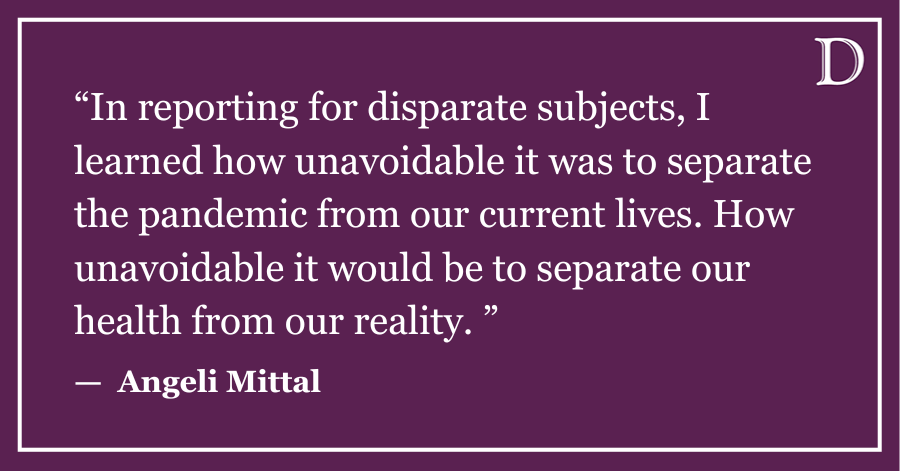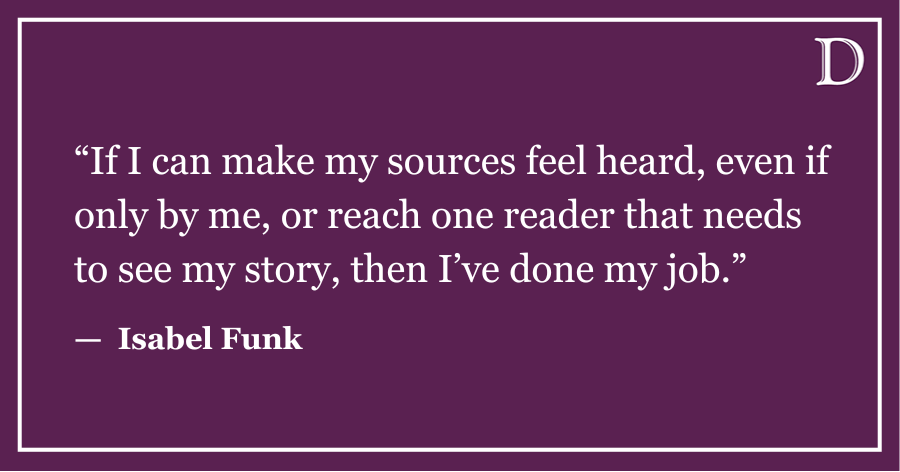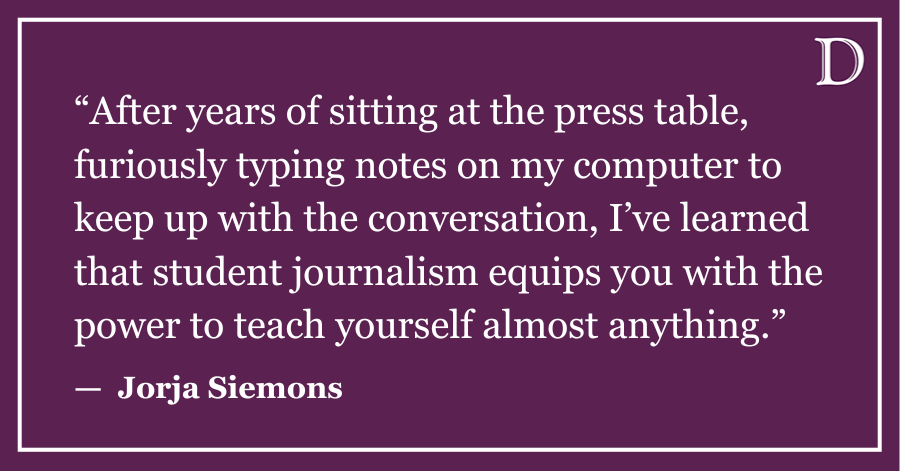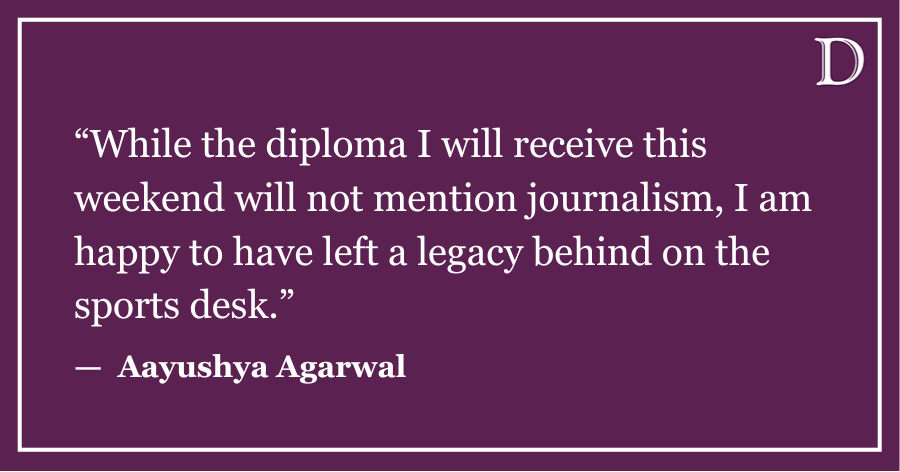In the winter of 2022, two of us (Caroline and Maia) were at long last ready to publish our In Focus — a monthslong investigation into how Northwestern Counseling and Psychological Services has repeatedly failed students. On the eve of publication, however, we nearly buckled under a final hurdle: Our editors encouraged us to craft threads on Twitter, now known as X, to promote our reporting.
It wasn’t an entirely unprecedented piece of advice. Journalists often post on social media to boost their major reporting projects, including authors of In Foci at The Daily. But one of us had tweeted only under duress for class assignments, and the other didn’t even have a Twitter account.
We asked ourselves why — despite the countless hours spent interviewing students and administrators in addition to the numerous nights stuck in the newsroom writing and editing — one of the hardest parts of the In Focus process was drafting a tweet. Why does it feel so uncomfortable at times to promote your work as a journalist?
This question continued to come up when the four of us worked together on the campus desk in spring 2022. That quarter, we also bonded over struggles to fill the paper, the minutiae of Associated Student Government bylaws and various Evanston brunch spots.
While we all moved on to other roles at The Daily after the year, we stayed friends and continued to navigate the social politics of student publications and the challenges of journalism together. And in the subsequent experiences we had at The Daily and professional newsrooms, we kept grappling with how to pursue our careers while not swiveling the spotlight of our reporting on ourselves.
When it came time to apply to jobs and internships, we were faced with the reality of having to “sell” ourselves as journalists. Even our very first Medill classes encouraged us to create Twitter accounts and build a social media presence.
But we realized that while sharing your own work and accomplishments is important, it can sometimes feel at odds with why we entered journalism: spotlighting underrepresented communities and bringing systemic inequities to light. What is the line between promoting your reporting and redirecting attention away from the actual subjects onto yourself?
We understand that social media can be an important tool to reach broader audiences. And for journalists who aren’t institutionally trained and connected — especially those from communities historically underrepresented in newsrooms — it can be the key to “making it” in the industry.
However, in the case of sensitive stories like our In Focus on CAPS, it can feel morally confusing to post about all the months you spent working on a story — especially when the sources themselves were the ones who were truly brave in sharing their painful, even traumatizing experiences with us.
In spring 2023, the other two of us (Russell and Joanna) covered the aftermath of the fatal Clark Street Beach shooting. Journalistically, it was a big story, but we avoided tweeting long-winded thoughts about our own coverage to keep the attention on the victims. In both instances, tweeting felt self-congratulatory, even if it was to promote important pieces of reporting.
When we sat down to write this column, we were hoping to end it with our thoughts on how others might approach striking this balance. But the truth is we don’t really have an answer. All we know is, as we start our careers, we want to interrogate the emerging imperative for journalists to cultivate a personal brand.
We hope The Daily and Medill will start tackling these conversations, especially as social media plays an evolving role in journalism. Journalism has never been about the person behind the byline, and we believe stories have the most impact when sources speak for themselves through our reporting.
Email: carolinebrew2024@u.northwestern.edu
Email: joannahou2025@u.northwestern.edu
X: @joannah_11
Email: rjleung7@u.northwestern.edu
X: @rjleung7
Email: maiapandey@u.northwestern.edu
X: @maiapandey






